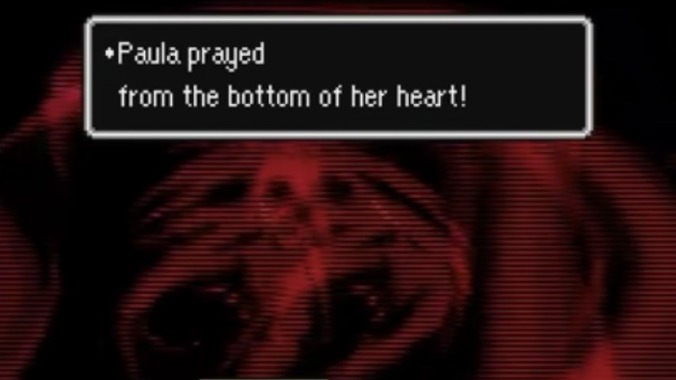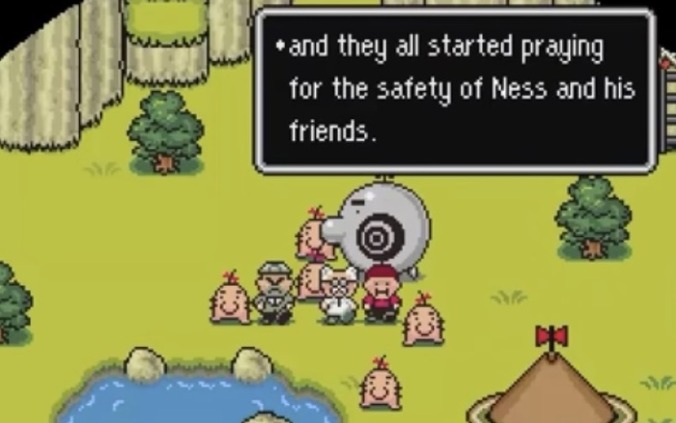The Power of Prayer: 30 Years of Earthbound

I missed Earthbound as a kid, and for that I am quite grateful. I don’t know that I would have appreciated how bizarre and complicated it gets. It wasn’t until Super Smash Bros. came out for the N64 that I met my dear friend Ness. Even then, it would be years until I went back and played his game. I remember it distinctly. I was sitting in a recording studio while my friend/engineer—let’s call him Rankle the Prince of Pranks—mixed what would be my old band’s final record. Rankle turned to me to ask a question and saw that I was tearing up. I had just completed my first playthrough of Earthbound, and it made me cry. I knew to expect this from Earthbound’s successor, Mother 3, the game that seems to be actively begging you to cry the entire time, but this took me by surprise. I wasn’t sad. I was moved and honestly impressed by how the game’s final moments evoked so many feelings while reminding me that I wasn’t just watching a story. I was participating in one.
The final battles of these games tend to change the way you interact with the battle system. In the original Mother our heroes get a new command “Sing” which they use to subdue Giygas. In Mother 3, we see our protagonist Lucas alone and unable to attack, only to heal himself while facing the final boss. They are less battles in the conventional sense, and more attempts at changing the heart of your enemy rather than defeating them. Earthbound follows this pattern, but deviates from it in ways that feel unique and exciting. In the final battle we see our heroes pitted against an evil so powerful and elemental that it can’t be understood by the human mind. They can’t comprehend its attacks, only that they are rapidly losing health. On top of that, their own counterattacks do just about nothing. Even their most powerful abilities barely put a scratch in this unknowable force. Ness and his friends are losing and alone. The game cultivates a feeling of desperation and isolation, of hopelessness in the face of insurmountable odds, until there is only one thing left that our heroes can do. They can pray.
“Pray” in Earthbound is a special skill used by Paula, a young psychic in your party. It is one of the earliest ways to group heal your party, but much like the prayers in our world, it can go unanswered and be ineffective. Before long you’ll get more reliable and stronger healing abilities, and Paula will become one of your most powerful offensive team members, causing “Pray” to be forgotten. By the time you reach the final boss it’s likely been hours and hours since the player has even considered it as an option given that it’s never been that useful and most of the time it doesn’t work. But there, alone in the dark at the end of the world, with nothing else working and half your party likely already incapacitated, Paula can try it one last time.
